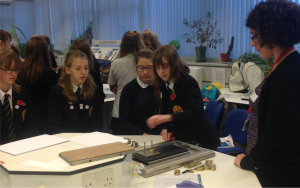|
Training for researchers Ideally, all researchers working with the schools involved in your engagement activity will have received some training, even if this is a brief session focusing specifically on the individual session they will be involved in. Some points to consider:
The training that is offered will depend on the experience and level of those involved. For example, an undergraduate will have different training needs to a senior academic.
It is worth checking with the following to see if they offer the training you require:
For contacts specific to the University of Southampton, see the Useful links and contacts section.
For example, teachers are the most experienced in the curriculum and therefore best placed to deliver national curriculum training, whereas a researcher’s Faculty or School may offer specific equipment training. A third party may offer a range of opportunities, for example, Equality and Diversity or Health and Safety training (such as that offered by the MSLC).
The suggested contacts listed under question 3 are also a good place to start when looking for potential funding sources. It is also worth asking the researcher’s Head of Group or, for postgraduate students, their Faculty Grad School or the Doctoral College as their may already be funding set aside for them for training and development. Furthermore, subject-specific societies and trusts such as the Royal Society of Chemistry or the Wellcome Trust often have funding calls for public engagement and outreach which can include research development and training. See also costs and funding.
|
|
Teachers Can you provide the teachers involved in the partnership with training opportunities? These may include:
It may be that you have identified a training need or a particular area for development that you would like your partnership with the university to address. If this is the case discuss it with the university staff that you are working with to give them the best opportunity to help you or your colleagues achieve this. Equally there may be an area in which you feel able to offer training to researchers. |
Back to National Curriculum Links…
…On to Safeguarding.
